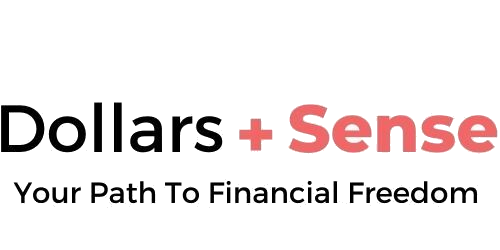Paying Down Debt vs. Saving?
Lesson 19 Chapter 2 Module 4
I know when I started my financial journey, I struggled with deciding on if I should pay off my debt first or start saving for the future. So in today’s lesson, I’m going to help you figure out which is best.
If you don’t have money set aside for emergencies, you need to focus on saving first. I recommend you have at least $1,000 saved before you even think about paying off your debt.
Once you have at least $1,000 in your emergency fund, you can focus on paying off high-interest debt. I consider any debt above 8% to be high-interest. Debt is a drain on your finances and slows down your achievement of financial freedom or any other financial goals.
Once you pay off your high-interest debt, I would make sure you have a fully-funded emergency fund (which is at least 3-6 months worth of expenses depending on your situation).
Then, once you have your emergency fund set up and have paid off your high-interest debt, it’s time to start thinking about some other financial goals you want to accomplish.
When Can You Focus On Both?
There are some special situations when you need to focus on saving AND paying down your high-interest debt—and that’s when your employer matches your retirement contribution.
Regardless of your debt, you should contribute the maximum amount your employer match to your 401(k) or similar plan. If you don’t you’re leaving FREE money on the table! After you contribute the maximum amount to your employer match to your retirement account, all extra money should go towards debt payoff.
But, I’m not going to get too deep into paying off debt in this lesson, because we will discuss more about debt in the bonus module.
Your Actionable Steps For This Lesson:
- Prioritize if you’re going to pay down your high-interest debt first or if you’re going to fully fund your emergency fund.
- Make sure you’re maxing out your employer match to your 401(k) or similar plan no matter what!

Leave a comment
Comment as a guest: